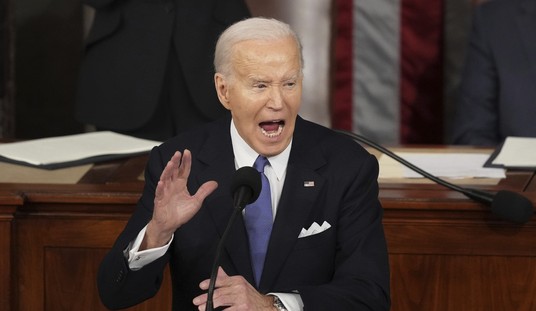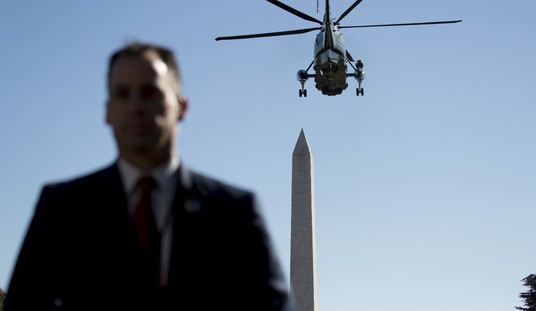Sunday's terror bombings, which murdered 76 people in Uganda's capital, Kampala, are another signal that East Africa could face a devastating regional war.
The attack demonstrates that Islamist terrorists willing to commit mass murder to advance their criminal theology remain active in eastern Africa. Americans first became aware of al-Qaida following the August 1998 terror bombings of U.S. embassies in Kenya and Tanzania.
Somalia's al-Qaida-affiliated Al Shabab Islamist terror group has claimed credit for the Kampala massacre. One bomb exploded in an Ethiopian cafe filled with World Cup soccer fans. Al Shabab's murderers picked that target carefully. Ethiopia supports Al Shabab's nationalist opponents in Somalia.
Ugandan troops serve with the African Union peacekeeping force in Somalia, which makes Uganda a special target for Al Shabab. Al Shabab's attacks in Kampala may be an attempt to repeat al-Qaida's "Madrid Precedent." Recall al-Qaida launched attacks in Madrid in March 2004, just before Spain's national elections. A "pro-peace" government was elected, and it withdrew Spanish forces serving in Iraq. Uganda has national elections scheduled for early next year.
A more dangerous regional war, however, lurks in East Africa. Uganda borders on south Sudan. Every day relations between the semi-autonomous Government of South Sudan (GOSS) and Sudan's national (northern) government in Khartoum deteriorate. The 2005 Comprehensive Peace Agreement (CPA), which ended the last north-south war, the Second Sudan Civil War, stipulated that a plebiscite on southern independence be held in 2011. Many southerners believe South Sudan is already a separate country. They support independence -- except the national government calls it "secession."
Conditions exist for renewed civil war, and a nudge or two, a bomb here and assassination there, might ensure it. Al Shabab has studied the map. Should the Third Sudan Civil War erupt, Ethiopia would face war on a third front. Ethiopia already confronts Eritrea and Somalia. Radical Islamists would exploit the religious facets of renewed civil war: South Sudan is predominantly Christian and animist, and the north is predominantly Muslim.
Recommended
The Second Sudan Civil War lasted two decades, left 2 million dead, created millions of refugees and -- despite ritual denials by Khartoum's Islamists -- involved slaving by northern-backed "Arab" militias. Southern Christian and animist black tribespeople were kidnapped then sold. Uganda was a covert ally of the southerners, for many reasons, including close links with the Dinka tribe, which provided the leaders in the south's Sudan Peoples Liberation Army (SPLA). Arab slaving, however, played a role.
Tribal violence already afflicts southern Sudan. Estimates vary (the areas involved are isolated), but a thousand people died in 2009 in tribal violence in South Sudan. The GOSS claims the north incites violence by providing arms to troublemakers. Sudan's national president, Omar al-Bashir, is under indictment by the International Criminal Court for genocide in Darfur. Providing arms to willing killers is a proven Bashir policy.
Oil fuels North-South disputes, and in a new civil war oil fields will be battlefields. Roughly 75 percent of Sudan's oil reserves are in territory that GOSS claims. "Claims" is appropriate because the exact north-south border has not been finalized. The two governments argue over oil income. South Sudan relies on oil royalties for 95 percent of its budget. The north dispenses the revenues. The GOSS contends the north cheated it of $300 million it was due in 2009.
Uganda insists Khartoum still supports Uganda's Lord's Resistance Army rebel group, so a new war could bring in Uganda as a military ally of the south. Kenya, and conceivably Ethiopia, might also be openly involved. Kenya has been a conduit for arms to the SPLA. In 2008, Somali pirates hijacked a ship transporting Ukrainian tanks to Kenya. The tanks' destination was South Sudan.
A vital environmental and economic conflict further exacerbates tensions. Kenya, Rwanda, Uganda, Tanzania and Ethiopia have announced they will no longer abide by a 1929 colonial treaty that gives the downriver nations what they regard as an unjust share of Nile water. The Khartoum government and Egypt reject the upriver nations' contentions.
Oil revenue and water rights disputes, religious differences, ethnic struggles and terrorists exploiting every division -- East Africa's fragile states edge toward a war of the poor that will create greater poverty.

























Join the conversation as a VIP Member